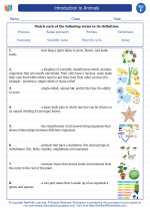Life Processes
Life processes are the essential activities that living organisms carry out to maintain their life. These processes are necessary for the survival, growth, and reproduction of living organisms. The key life processes include nutrition, respiration, excretion, transportation, and regulation.
Nutrition
Nutrition is the process by which organisms obtain and utilize food for energy and growth. It involves ingestion, digestion, absorption, and assimilation of nutrients. Organisms can be classified based on their mode of nutrition, such as autotrophic (organisms that can produce their own food) and heterotrophic (organisms that depend on other organisms for food).
Respiration
Respiration is the process of releasing energy from food. It involves the exchange of gases, such as oxygen and carbon dioxide, and the production of ATP (adenosine triphosphate) for cellular activities. Respiration can be aerobic (with the presence of oxygen) or anaerobic (without oxygen).
Excretion
Excretion is the removal of waste products generated by the metabolic activities of the body. This process helps maintain the internal environment of the organism by eliminating harmful substances. Excretory organs, such as the kidneys, liver, and skin, play a crucial role in excreting waste products from the body.
Transportation
Transportation is the movement of substances, such as nutrients, gases, and waste products, within the body of an organism. The circulatory system in animals and the vascular system in plants are responsible for the transportation of essential substances to various parts of the body.
Regulation
Regulation involves the coordination and control of various life processes within an organism. It includes processes such as maintaining a stable internal environment (homeostasis), responding to stimuli, and coordinating the activities of different body systems. Hormones and the nervous system play a significant role in regulating life processes in organisms.
Study Guide
- What are the main life processes in living organisms? Provide a brief explanation of each process.
- How is nutrition essential for the survival of organisms? Explain the different modes of nutrition.
- Describe the process of respiration and its significance in providing energy for cellular activities.
- Why is excretion important for maintaining the internal environment of an organism? Name the excretory organs in humans.
- Explain the role of the circulatory system in the transportation of substances within the body of an organism.
- Discuss the importance of regulation in coordinating and controlling life processes within an organism. Provide examples of regulatory mechanisms.
Understanding life processes is crucial for comprehending the functioning of living organisms and their interactions with the environment. Mastery of these concepts is essential for excelling in biology and related fields.
.◂Science Worksheets and Study Guides Sixth Grade. Introduction to Animals
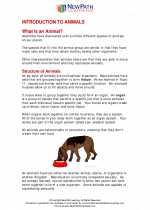
 Activity Lesson
Activity Lesson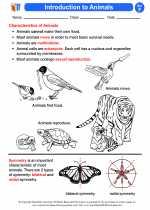
 Worksheet/Answer key
Worksheet/Answer key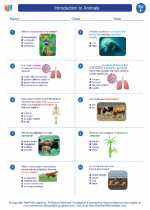
 Worksheet/Answer key
Worksheet/Answer key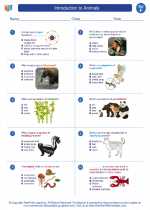
 Worksheet/Answer key
Worksheet/Answer key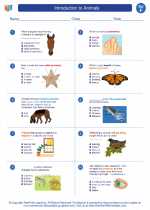
 Vocabulary/Answer key
Vocabulary/Answer key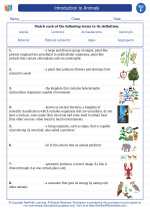
 Vocabulary/Answer key
Vocabulary/Answer key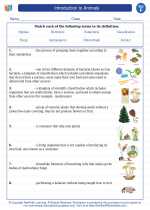
 Vocabulary/Answer key
Vocabulary/Answer key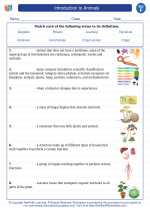
 Vocabulary/Answer key
Vocabulary/Answer key